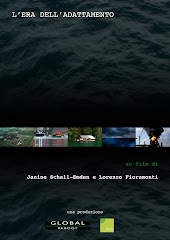By Janine Schall-Emden and Lorenzo Fioramonti (Global Reboot)
The current development model, based on the dogma of infinite economic growth, is deeply unsustainable and unjust in at least three different regards. Politically, as it dictates that only a minority can control energy resources and its benefits, steer the market economy and, eventually, pull the strings of global governance. Financially, as it makes our societies completely vulnerable to financial ‘hiccups’, which are quickly turned into devastating economic crises that nobody seems to be able to stop. Environmentally, as it depletes the Earth of natural resources, causing serious ecological damage and undermining the future of biological (including human) life on the only planet we have. No matter what angle we choose, it is clear that this model is irremediably wrong.
If the whole world were a single country (as it practically is at a time of sustained globalization), it would be the most unjust nation in history. The lion’s share of global wealth is concentrated into the hands of 2% of the world’s population, while over 1 billion people go hungry everyday. A few multinationals have larger budgets than entire nations. Global politics is controlled by 8 states (the so-called G8) out of over 190 countries (that is, less than 4%). In France, before the 1789 revolution, the political and economic power was in the hands of about 6% of the population. How does that compare?
Undoubtedly, the current development model has had important positive effects on certain aspects of our quality of life. For instance, less people die today in the European Union than fifty years ago, education systems are more efficient, technology has covered significant ground in many fields. Yet, this applies to a small minority of citizens. For the vast majority, economic development has simply meant dispossession, privatization, devastation, and war. And even in the most economically developed countries, the following questions are still to be answered: has market-based consumerism made our societies more mature? is our economic wellbeing allowing us to enjoy life more fully? are we really happier when our country’s GDP goes up? These are crucial questions, which we often refuse to face.
After sweeping all these problems under the carpet for decades, climate change is now forcing us to revise the fundamentals of our economic system. The planet cannot take it anymore. Even traditional economic reasoning would recognize that such a development model, which endangers the continuation of life on the planet while exacerbating injustices, is utterly sub-optimal and must be revolutionized. While technology might help to some extent, it will certainly not solve the problem on its own. Seemingly magical solutions such as cap and trade, offsetting, clean development mechanism, joint implementations and basically all other instruments contemplated by the Kyoto Protocol and under negotiation at the COP 15 are missing the forest for the trees. Not only do they keep perpetrating the system that generated all problems we have been discussing, but they also distract citizens with false solutions. In the European Union, the carbon trade mechanism has already shown all its flaws.
We cannot continue business-as-usual. Climate change is already having catastrophic consequences, which will exacerbate in the coming years. Poor countries are faced with droughts, floods, and recurrent famines. Richer countries have to deal with colder winters and unsustainably hot summers, fires and millions of climate refugees approaching their borders in search for a better life, as is also recognized by the European Commission in the 2009 White Paper on Adapting to Climate Change. Having failed to mitigate the effects of climate, we are slowly entering an ‘age of adaptation’. Whether we like it or not, we are coming to terms with the fact that the way in which we have been living on the planet will be fundamentally altered in the next decades. But adaptation can occur in two diametrically opposed ways. We can practice reactive adaptation, by refusing to change our unsustainable development model and preparing to defend ourselves against rougher weather and growing popular unrest (e.g. by building a fortress around the EU, shooting migrants on the borders, or building highly protected compounds, not dissimilar to some Israeli settlements in Palestine, which would allow us to continue pretending nothing is happening our there). Or, rather, we can start adapting more actively. Active adaptation requires full awareness of the flaws of our development model in order to build a new type of society. Active adaptation will need us to get more involved in the running of our villages, towns and cities in order to experiment with new models of collective life. More than mere personal lifestyle changes, it means that we demand a transformation of how our societies are run. It is a u-turn with regard to the way which most of us have been living thus far, but it is the only option we are left with. Adaptation is inescapable, but we can still decide how to adapt.
*They are the authors of “The Age of Adaptation”, a documentary which discusses some of the ideas presented in this article. To view the film, click here.


No comments:
Post a Comment